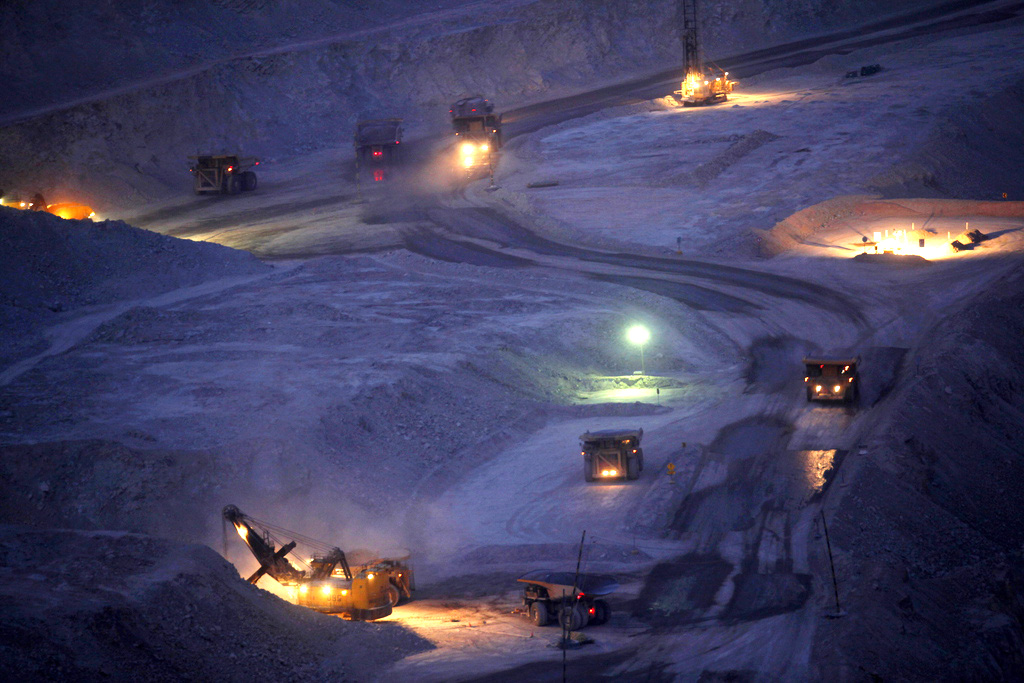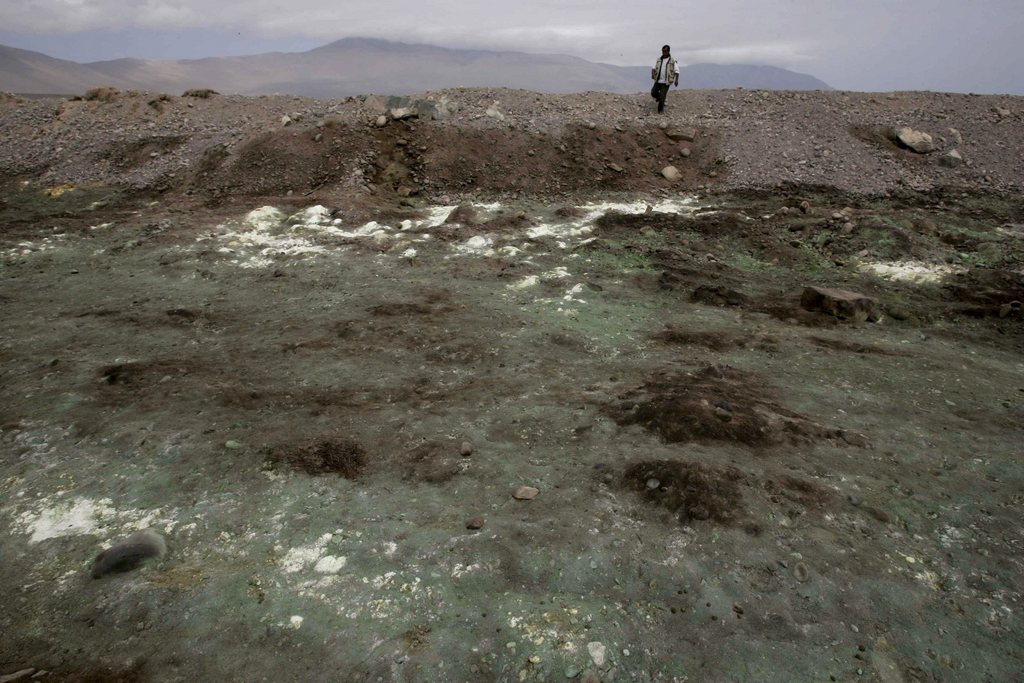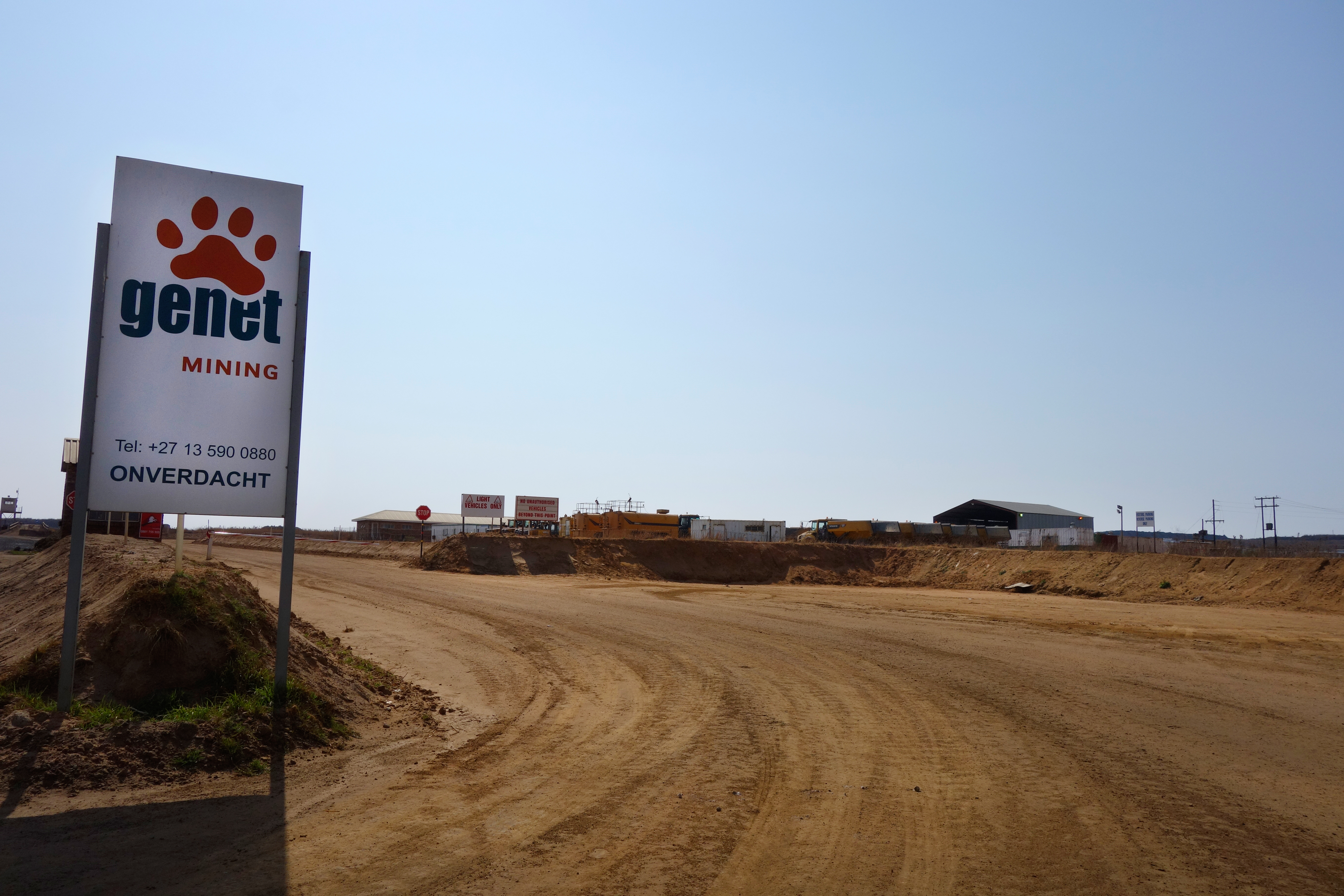Swiss sitting on commodity trade ‘dynamite’

Switzerland needs a regulatory body to control commodities trading. Pressure group Berne Declaration has mooted the idea of a new regulator called ROHMA. Corruption and human rights investigator Dick Marty has agreed in principle to join the board of the proposed body.
Marty’s career has taken in a stint as Canton Ticino’s chief prosecutor then as a senator in the Swiss Parliament (1995-2011). As a member of the Parliamentary Assembly of the Council of Europe, Marty has investigated various shady activities, such as the use of secret prisons by the CIA.
It was announced in January 2014 that he had been appointed by cycling’s governing body UCI to lead a three-man independent panel to examine the sport’s doping past.
Why have you chosen to take a seat on the as yet not-existing regulator, as put forward by the Berne Declaration?
I am convinced that there is an urgent need for such a regulator. This is absolutely necessary, but Swiss authorities appear to have no awareness of this need. I think this provocative approach is necessary because, for a while now, Switzerland has failed to spot the dangers. We run into problems too late, only after they have occurred.
I observed this as a parliamentarian, particularly with the dormant [Holocaust-era] bank accounts. This was a real shock: the issue was introduced by parliamentarians but was quashed by a virtually empty room. We saw the resulting tsunami shake Switzerland afterwards.
There are a number of areas in which you can see Swiss policy failing to keep up with the times and not spotting problems. The trade in raw materials has become an important activity in Switzerland, but we are sitting on dynamite.
Are you saying that the problems connected to commodities trading are a time-bomb for Switzerland?
Yes, and there is a danger that tomorrow Switzerland could be accused of having done nothing about this. When we observe how the United States justice authorities tackle Swiss companies, we have to be wary. At the same time, it makes no sense to pour billions in development assistance – as Switzerland does – when it does nothing to address the important structural problems concerning the extraction and trade of raw materials.
Switzerland must do this because our country is one of the most important centres of raw materials trade. Switzerland is also a country that espouses high ethical standards with the presence of so many international organisations, the Geneva Convention, and its stance on neutrality.
But isn’t the creation of ROHMA a bit utopian?
Yes, today the establishment of a regulatory body to monitor the trade of raw materials is utopian. But let me tell you a story: in the latter 1970s there were some young prosecutors warning that money laundering and bank secrecy laws would be damaging for the country.
Of course, they were branded as enemies of the Swiss financial centre! As luck would have it, I was involved in bringing in measures against money laundering in the Senate 25 years later. Bankers were the first to boast about such advances in regulation. And yet 25 years earlier they were calling us traitors.
How do you evaluate the attitude of the Swiss government?
It’s more than cautious, even fearful. The authorities showed that they are approaching the subject in an unacceptable manner when they issued their report on the industry. It defied reality. The government opted for self-regulation so that it did not have to work out regulation itself. If reputable companies adopt self-regulation they have nothing to fear from external regulators. But there are also rogue players.
There is regulation governing the keeping of goldfish that states that they must not be put into an aquarium alone, so why should the activities of commodity traders – that can plunge millions of people into poverty – not also be regulated?
According to the latest studies, a quarter of all African oil is in the hands of Swiss companies. The size of this sector alone demands that we regulate it.
Regulation has been waived because the government fears that traders will simply leave the country.
That is a short-sighted view that gives no thought to the medium or long-term. That’s what saddens me about Swiss politics. As I have already said, all the major crises that have hit Switzerland (dormant assets, UBS, Swissair, money laundering), show that scandal could have been avoided with regulation.
Wouldn’t Switzerland be sticking its neck out if it moved first on regulations?
Things are moving in the US and that often provides impetus for the European Union. I ask myself why Switzerland should not, for once, take a leadership role.
Switzerland has a reason to adopt this role, being one of the biggest trading centres for raw materials in the world. Why should we always dawdle along? I am convinced that this sector will eventually become regulated. And I believe that Switzerland could play a major role in forming these international regulations.
The movement towards more regulation has already taken in the financial sector. It will soon cover the commodities sector as people will soon realise that it is necessary to react against all the problems created by the imbalance between the developed and developing countries. Solutions to such major structural problems will not be found in small aid projects alone.
“The industry is already indirectly monitored”
Stéphane Graber is Secretary-General of the Geneva Trading and Shipping Association (GTSA), representing some 400 commodity trading firms in the Geneva area.
Does the industry need a regulatory body?
The industry is already indirectly regulated by FINMA [the Swiss Financial Market Supervisory Authority that regulates the financial sector]. The finance of each contract is guaranteed by a bank.
The mining and trade of raw materials is monitored at an international level. This means that companies are already covered by more than 70 authorities. If we replace this with a single regulator, it would create a bureaucratic monster that would change the situation for countries already have governance and local conflict problems.
Is that really so?
Yes. We know that these countries collect a majority of revenues and that they have problems with local distribution. It would be futile to oversee all these 70 authorities with a single agency. An agency like the proposed ROHMA would have around 300 people. All efforts must be directed at supporting good governance.
Would a regulator not improve the image of the industry?
This is a political issue and it is not for Berne Declaration, or the industry itself, to tell the government how to act. Companies prioritise their reputations because their existence depends directly on this. Any company that behaves in a way that harms their reputation would, overnight, not be able to conduct any more transactions.
Translated by Matthew Allen from German

In compliance with the JTI standards
More: SWI swissinfo.ch certified by the Journalism Trust Initiative



You can find an overview of ongoing debates with our journalists here . Please join us!
If you want to start a conversation about a topic raised in this article or want to report factual errors, email us at english@swissinfo.ch.